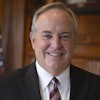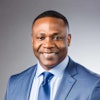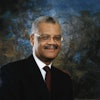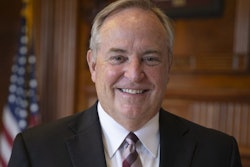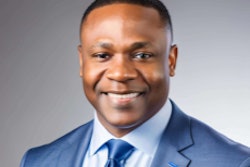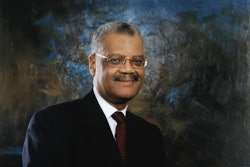 Dr. Belinda Biscoe
Dr. Belinda Biscoe
The Southwest Center for Human Relations Studies, partnering with American University's Center for Student Belonging, is launching the Mid-Atlantic Regional Institute on Higher Education, a professional development initiative targeting practitioners from Washington, D.C., Maryland, Virginia, and Delaware.
The opening panel, "Civic Discourse and the Role of the Academy in Public Life," will kick off the Oct. 9 event at 1:30 p.m. ET, examining how institutions can maintain relevance amid what organizers describe as "a time of political polarization and social transformation."
Dr. Jamal Watson, an award-winning journalist and Trinity Washington University faculty member, will moderate the discussion featuring three higher education executives.
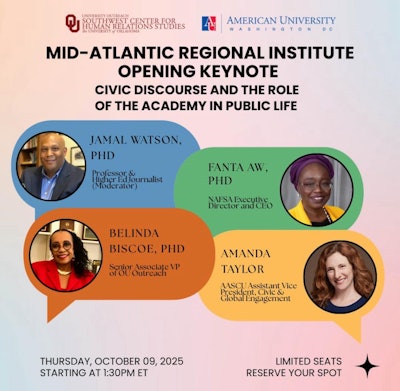
The panel will explore strategies for promoting media literacy, engaging across ideological divides, and rebuilding public trust in higher education institutions.
The institute addresses eight critical areas: civic discourse and engagement, financial aid systems, student access for nontraditional populations, workforce transitions, pedagogy, institutional mission, leadership development, and student activism.
Organizers cite "shifting socio-political climates and heightened scrutiny around campus initiatives" as driving forces behind the new program.
The institute aims to build regional partnerships between universities, public agencies, and industry while helping leaders navigate federal and state policy changes. Additional sessions will examine workforce development, legal leadership, and the impact of artificial intelligence on employment.
Learning objectives include applying methods for dialogue across socioeconomic divides, evaluating the influence of algorithms and misinformation on civic engagement, and developing strategies for serving formerly incarcerated individuals, parenting students, and other nontraditional learners.
The program represents a new approach to professional development for higher education practitioners in a region that includes some of the nation's most politically divided states. You can register here.
